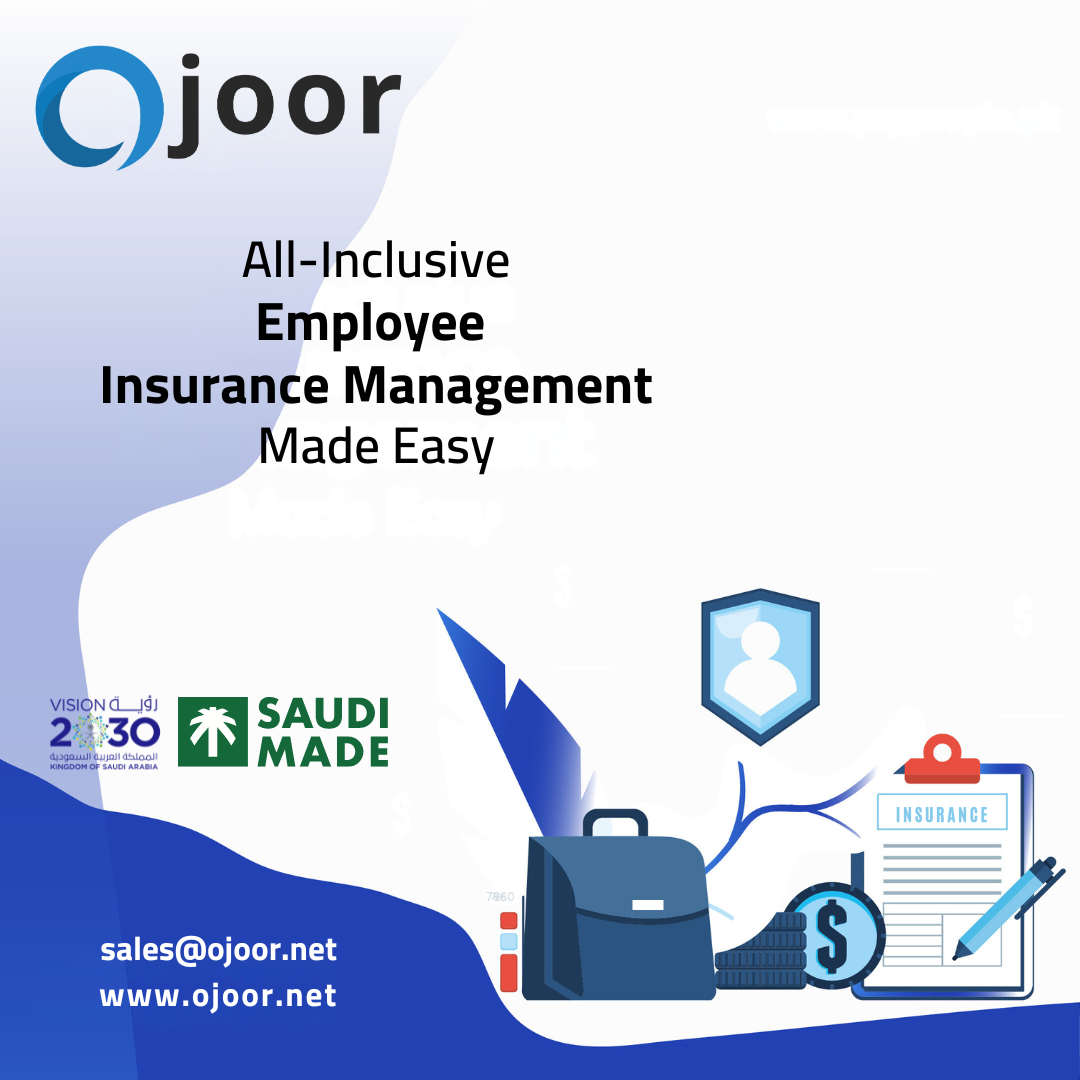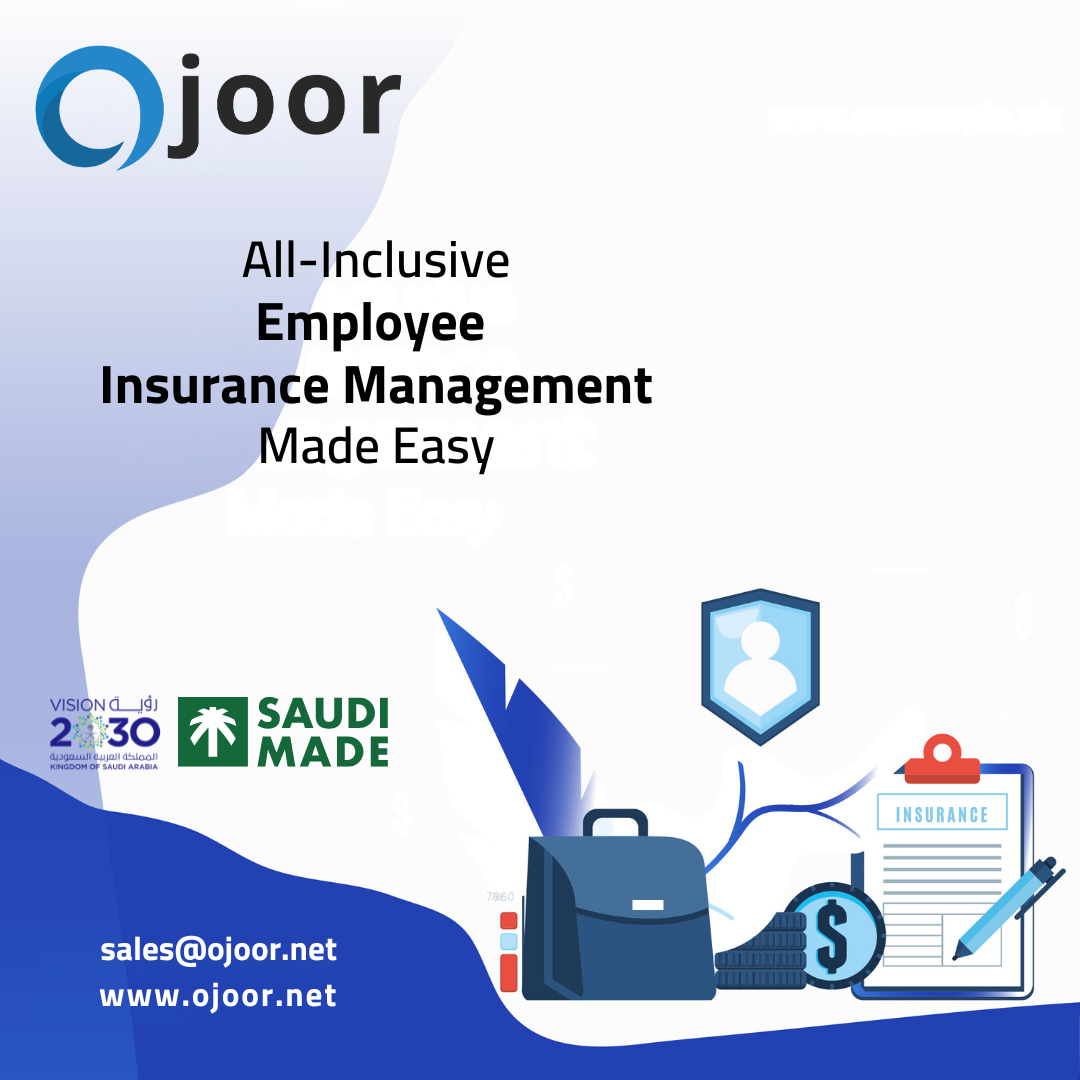Ojoor # 1 is one of the top HRMS in Saudi Arabia where compliance with local regulations is paramount for businesses, the integration of Human Resource Management Systems with local government systems can significantly streamline administrative processes, enhance compliance, and improve operational efficiency. This article explores the integration potential of HRMS with local government systems in Saudi Arabia, examining its benefits, challenges, and implications for organizational management.
Click to Start Whatsapp Chatbot with Sales
Mobile: +966547315697
Email: sales@Ojoor.net
Ojoor #1 HRMS in Saudi Arabia
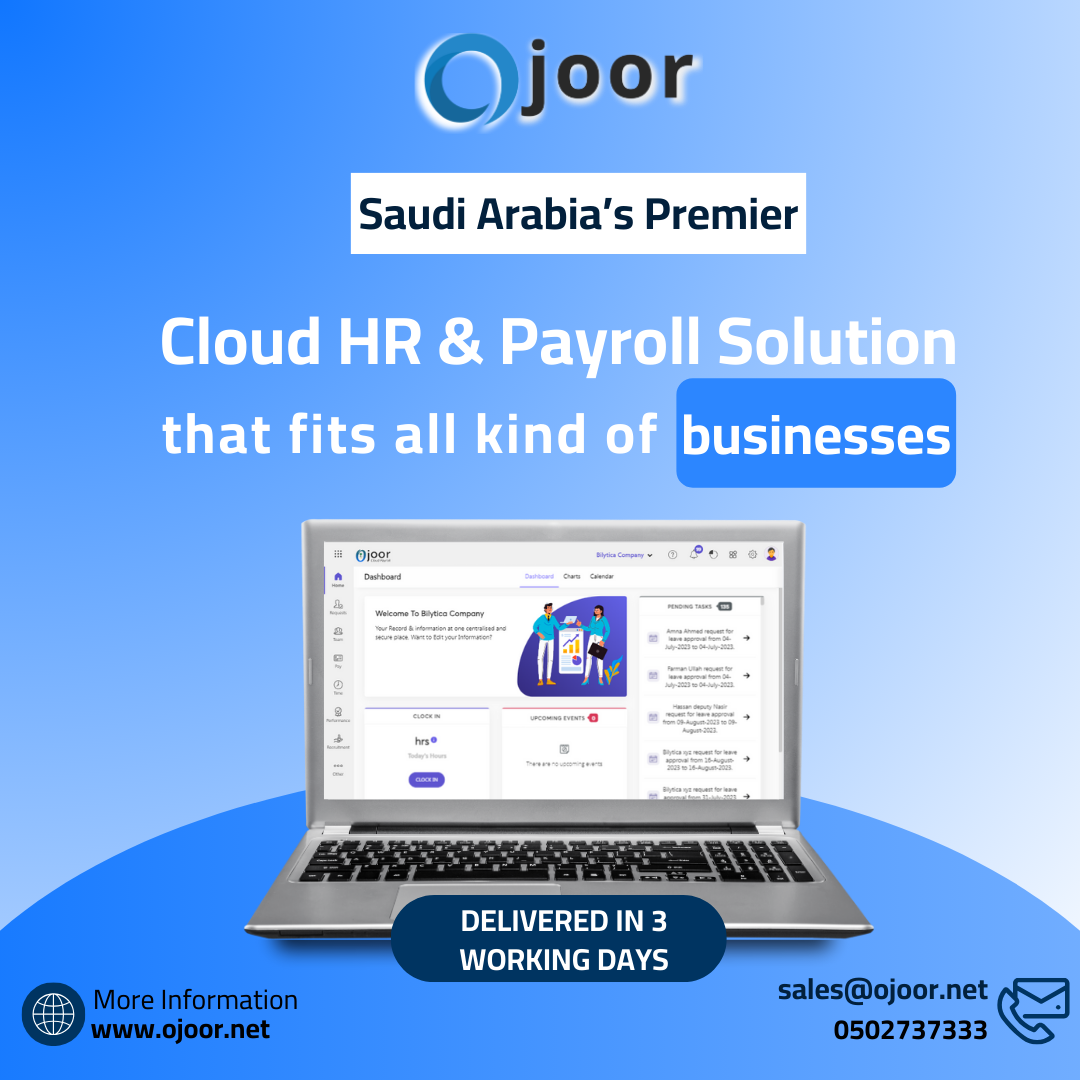
Can HRMS in Saudi Arabia integrate with local government systems?
Understanding Local Government Systems in Saudi Arabia
Before delving into the integration capabilities of HRMS in Saudi Arabia, it’s essential to understand the landscape of local government systems in Saudi Arabia. These systems encompass various entities responsible for regulatory compliance, including the Ministry of Human Resources and Social Development (MHRSD), the General Organization for Social Insurance (GOSI), and the Ministry of Interior (MOI), among others. Each entity oversees specific aspects of labor laws, social insurance, residency permits, and other regulatory requirements.
Integration Benefits
Integrating HRMS with local government systems offers several benefits for organizations operating in Saudi Arabia:
Compliance Assurance
By syncing HRMS data with government systems, organizations can ensure compliance with labor laws, social insurance regulations, and residency permit requirements. Automated data transfer reduces the risk of errors and penalties associated with non-compliance.
Streamlined Processes
Integration eliminates manual data entry and redundant paperwork, streamlining administrative processes such as employee registration, visa processing, and social insurance contributions. This efficiency translates into time savings and operational cost reductions.
Real-Time Updates
Integration enables real-time synchronization of employee data between HRMS and government systems, ensuring that information remains accurate and up-to-date. This real-time visibility enhances decision-making and facilitates timely responses to regulatory changes.
Enhanced Reporting
Integrated HRMS can generate comprehensive reports on compliance metrics, social insurance contributions, employee residency statuses, and other regulatory requirements. These reports support audit readiness, regulatory filings, and strategic decision-making.
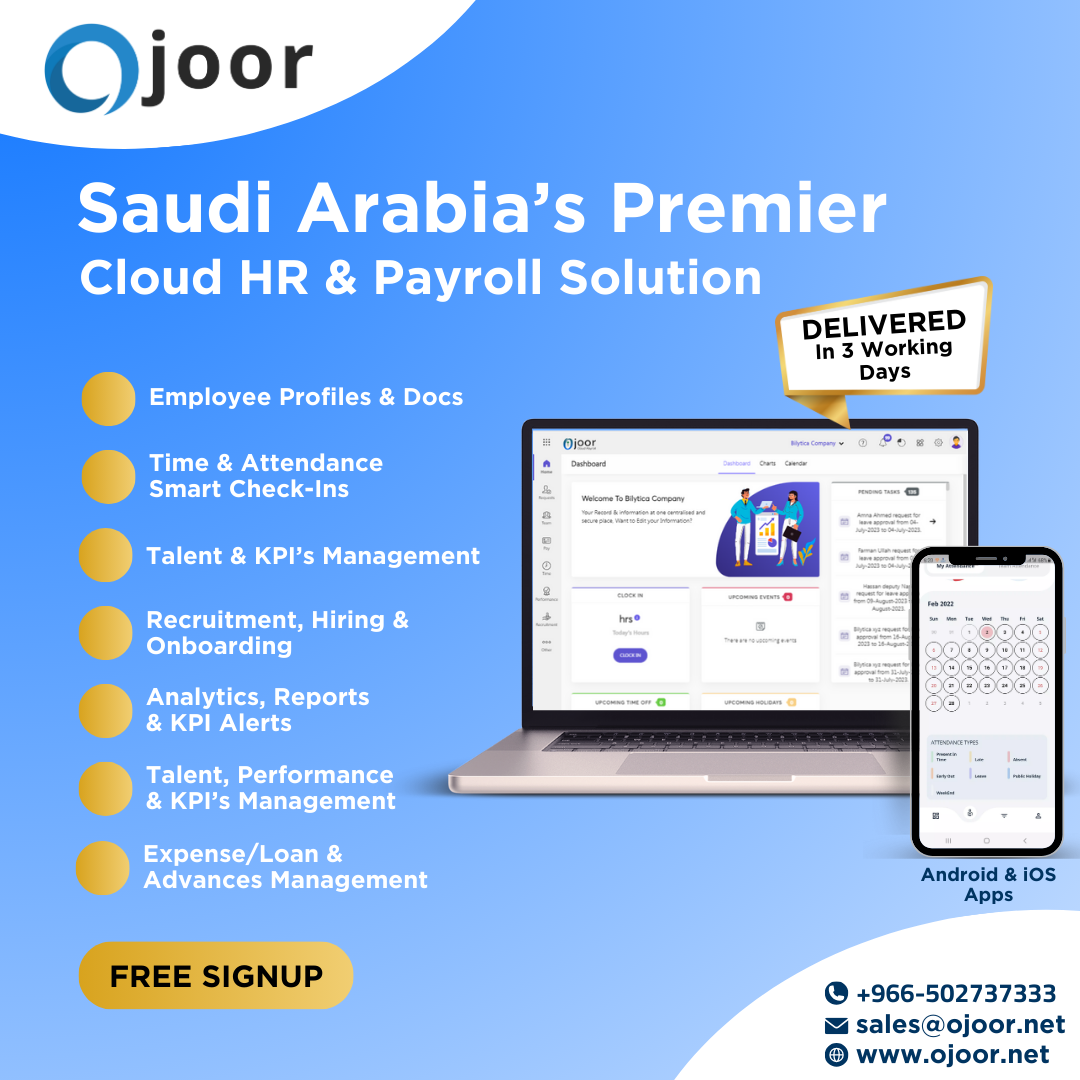
Can HRMS in Saudi Arabia integrate with local government systems?
Integration Challenges
Despite its benefits, integrating LMS training with local government systems in Saudi Arabia may pose some challenges:
Technical Complexity
Integrating disparate systems with varying data formats, protocols, and security requirements can be technically complex. Organizations may encounter compatibility issues, data mapping challenges, and connectivity issues during the integration process.
Regulatory Hurdles
Navigating the regulatory landscape and understanding the data-sharing protocols prescribed by government entities can pose challenges. Organizations must ensure compliance with data privacy laws, residency regulations, and social insurance requirements while integrating HRMS with government systems.
Resource Constraints
Implementing integration projects requires dedicated resources, including IT expertise, project management capabilities, and financial investments. Small and medium-sized enterprises (SMEs) with limited resources may face challenges in undertaking complex integration initiatives.
Change Management
Integration projects may require organizational changes, process reengineering, and stakeholder buy-in. Resistance to change, employee training needs, and cultural factors may impact the success of integration efforts.
Integration Strategies
To overcome challenges and maximize the benefits of integration, organizations can adopt the following strategies:
Prioritize Data Security
Implement robust data security measures, encryption protocols, and access controls to protect sensitive employee information shared between HRIS Systems and government systems. Compliance with data privacy laws such as the Saudi Data Protection Law (SDPL) is essential.
Collaborate with Government Entities
Establish collaborative partnerships with relevant government agencies and entities to streamline integration efforts. Engage in dialogue, seek guidance on data-sharing protocols, and leverage government support programs for digital transformation initiatives.
Invest in Integration Platforms
Consider investing in integration platforms or middleware solutions that facilitate seamless data exchange between HRMS and government systems. These platforms offer pre-built connectors, data transformation tools, and monitoring capabilities to simplify integration complexity.
Adopt Incremental Approach
Break down integration projects into manageable phases or modules to mitigate risks and demonstrate quick wins. Start with essential data elements, such as employee identification information, before expanding the integration scope to include additional functionalities.
Provide Training and Support
Offer comprehensive training programs and support resources to employees who will be using integrated HRMS functionalities. Empower users to understand the benefits of integration, navigate new processes, and troubleshoot integration-related issues effectively.
Case Studies and Best Practices
Several organizations in Saudi Arabia have successfully integrated HRMS with local government systems, demonstrating best practices and lessons learned. Case studies and success stories can provide valuable insights into integration strategies, technical approaches, and business outcomes achieved.
Conclusion
The integration of HRMS with local government systems presents significant opportunities for organizations in Saudi Arabia to enhance compliance, streamline processes, and improve operational efficiency. While integration may pose challenges related to technical complexity, regulatory compliance, resource constraints, and change management, adopting the right strategies and leveraging best practices can help organizations overcome these hurdles. By prioritizing data security, collaborating with government entities, investing in integration platforms, adopting an incremental approach, and providing training and support, organizations can maximize the benefits of HRMS integration and position themselves for long-term success in the Kingdom’s regulatory environment.
Click to Start Whatsapp Chatbot with Sales
Mobile: +966547315697
Email: sales@Ojoor.net
HRMS in Saudi Arabia
HRMS in Saudi Arabia
HRMS in Saudi Arabia
Can HRMS in Saudi Arabia integrate with local government systems? similar software solutions prices were updated on 2024-05-02T05:09:12+00:00 in Saudi Arabia in Mecca, Medina, Riyadh, Khamis Mushait, Yanbu, Jeddah, Dammam, Unaizah, Uqair, Ha’il, Ta if, Al Bahah, Dhahran, King Abdullah Economic City, Najran, Diriyah, Qatif, Khafji, Jubail, Abqaiq, List of Cities and Towns in Saudi Arabia, Ras Tanura, Turubah, Jazan Economic City, Knowledge Economic City, Medina, Khobar, Abha, Tabuk, Saudi Arabia, similar software solutions prices were updated on 2024-05-02T05:09:12+00:00 We also provide in Saudi Arabia services solutions company in Hafar Al-Batin, Udhailiyah, Al-Awamiyah, Hofuf, Hautat Sudair, Buraidah, Tayma, Duba, ‘uyayna, Saihat, Al-Kharj, Al-ula, Jizan, Rumailah, Ar Rass, Arar, Shaybah, Al Majma’ah, Rabigh, Dhurma, Haradh, List of Saudi Cities by Gdp Per Capita, Badr, Sudair Industrial City, Baljurashi, Shaqraa, Al-Khutt, Habala, Ad Dawadimi, Dawadmi, Layla, similar software solutions prices were updated on 2024-05-02T05:09:12+00:00 Price is SAR 100 and this was updated on updated on 2024-05-02T05:09:12+00:00 similar Can HRMS in Saudi Arabia integrate with local government systems? software solutions prices were updated on 2024-05-02T05:09:12+00:00 in Saudi Arabia in Haql, Afif, Al-Abwa, Farasan, Al-Jaroudiya, Thadig, Al-Thuqbah, Al Wajh, Almardmah, Al-Zilfi, Muzahmiyya, Prince Abdul Aziz Bin Mousaed Economic City, Tharmada’a, Skaka, Um Al-Sahek, Sharurah, Tanomah, Bisha, Dahaban, Al Qunfudhah, Qurayyat, Saudi Arabia, Ha’ir, as Sulayyil, Al Lith, Turaif, Al-Gway’iyyah, Samtah, Wadi Ad-Dawasir, Az Zaimah, Safwa City, Jalajil, Harmah, Mastoorah, Hotat Bani Tamim, Jabal Umm Al Ru’us, Rafha, Qaisumah, Al-Ghat, Hajrah, Al-Hareeq. Excerpt: Jeddah (also spelled Jiddah, Jidda, or Jedda; Arabic: Jidda) is a Saudi Arabian city located on the coast of the Red Sea and is the major urban center of western Saudi Arabia similar software solutions prices were updated on 2024-05-02T05:09:12+00:00 Price is SAR 100 and this was updated on updated on 2024-05-02T05:09:12+00:00
19-4-2024
